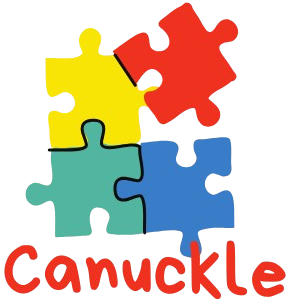
Introduction
The 72 Sold program, known for its innovative real estate strategies, has garnered significant attention for its promise to sell homes faster and at higher prices. While it has been praised by many, it has also faced legal challenges that have brought its practices into question. This article dives into the details of the 72 Sold lawsuit, exploring its background, allegations, implications, and what it means for homeowners and the real estate industry.
What is 72 Sold?
72 Sold is a real estate program offering homeowners a streamlined process to sell their homes in as little as 72 hours. The program uses targeted marketing and partnerships with real estate agents to provide quick sales without the traditional hassles of open houses and prolonged negotiations.
Key Features of 72 Sold:
- Streamlined home selling process.
- Targeted marketing campaigns.
- Focus on achieving higher selling prices quickly.
Overview of the Lawsuit
The lawsuit against 72 Sold has raised questions about the program’s practices and claims. While the exact details vary, common allegations include:
- Misleading Advertising: Claims that the company exaggerated its success rates and benefits.
- Breach of Contract: Allegations from clients who felt the services did not meet advertised promises.
- Unfair Business Practices: Competitors and regulators have questioned the program’s compliance with industry standards.
Key Allegations in the Lawsuit
1. False Advertising
One of the central claims in the lawsuit is that 72 Sold misled customers about the effectiveness of its program. Critics argue that the company’s marketing tactics exaggerated potential outcomes, leaving homeowners with unrealistic expectations.
2. Non-Disclosure of Fees
Some clients allege that hidden fees were not disclosed upfront. These fees allegedly led to financial surprises for sellers who expected a straightforward transaction.
3. Impact on Agents
Traditional real estate agents have voiced concerns that 72 Sold’s practices undermine industry norms, potentially breaching professional standards and ethics.
4. Consumer Complaints
Homeowners have reported dissatisfaction with the services provided, claiming they did not receive the benefits promised in the marketing campaigns.
Implications for Homeowners
The lawsuit has brought several important considerations to light for homeowners:
- Do Your Research: Before committing to any real estate program, ensure you understand all terms and conditions.
- Ask Questions: Clarify the fee structure and any potential limitations of the service.
- Read Reviews: Consider testimonials and independent reviews to gauge the program’s effectiveness.
72 Sold’s Response to the Lawsuit
In response to the lawsuit, 72 Sold has issued statements defending its practices and reputation. The company claims:
- Its advertising adheres to legal standards.
- Many satisfied clients have successfully sold homes through the program.
- Allegations are exaggerated and misrepresent the company’s goals and achievements.
Legal and Industry Implications
1. For the Real Estate Industry
The lawsuit highlights the need for transparency and accountability in innovative real estate programs. It also calls for stricter regulations to protect consumers from misleading claims.
2. For Competitors
Traditional real estate agents and companies may feel pressure to adapt to innovative models like 72 Sold, balancing innovation with compliance.
3. For Regulators
The case underscores the importance of monitoring marketing practices in the real estate sector to ensure consumer protection.
Lessons for Homeowners and Real Estate Professionals
The 72 Sold lawsuit serves as a cautionary tale for both homeowners and real estate professionals. Here are some lessons to consider:
For Homeowners
- Understand the Fine Print: Always review contracts and agreements thoroughly before signing.
- Ask for Transparency: Request detailed breakdowns of fees and services.
- Seek Multiple Opinions: Consult multiple real estate agents or companies before making a decision.
For Real Estate Professionals
- Maintain Ethical Standards: Transparency and honesty in advertising are essential.
- Embrace Innovation Responsibly: While new models can be exciting, they must align with industry regulations.
- Build Trust: Focus on establishing trust with clients through clear communication and reliable services.
FAQs
1. What is the 72 Sold lawsuit about?
The lawsuit involves allegations of misleading advertising, non-disclosure of fees, and unfair business practices against the 72 Sold program. Homeowners and competitors have raised concerns about the program’s practices.
2. Does the lawsuit mean 72 Sold is illegal?
No, the lawsuit does not automatically imply illegality. It raises questions about specific practices, and the outcome will depend on the court’s findings.
3. How can I protect myself when using real estate programs like 72 Sold?
To protect yourself:
- Read all contracts carefully.
- Ask for a clear breakdown of fees.
- Research the company’s reputation and reviews.
4. Is 72 Sold still operational during the lawsuit?
Yes, 72 Sold continues to operate while addressing the legal challenges. The lawsuit has not halted its operations.
5. What alternatives exist to 72 Sold?
Traditional real estate agents, online platforms like Zillow, and other innovative selling programs offer alternatives. Evaluate each option based on your needs and priorities.
6. How does this lawsuit affect the real estate industry?
The lawsuit highlights the importance of ethical practices and transparency in real estate. It also encourages regulators to monitor marketing and operational practices more closely.
Conclusion
The 72 Sold lawsuit is a significant development in the real estate industry, raising questions about transparency, ethics, and innovation. While the program offers unique benefits, potential clients should exercise caution and conduct thorough research. As the legal proceedings unfold, they will likely shape the future of real estate practices and consumer protection.
By staying informed and vigilant, homeowners and real estate professionals can navigate these challenges and make confident decisions in the dynamic real estate landscape.
For more Information please visit my website: Canuckle.






